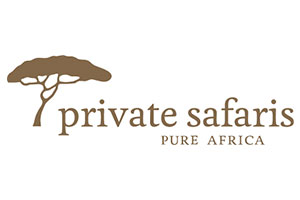Tunisia
Travel tips for Tunisia
Top 5 Experiences
Deserts, seas, mountains, lakes, and charming historic cities await. Highlights include:

Roman Ruins
With must-visit sites like the El Djem Amphitheatre, these ancient structures not only stand as architectural marvels but also resonate with the glory of the Roman Empire at its peak.

Sahara
Tunisia’s golden dunes are ideal for witnessing breathtaking sunsets and provide a tranquil space for relaxation and reconnection amidst the world’s largest desert.

Cinematic History
Beyond its Roman legacy, Tunisia’s landscapes have also etched their mark in cinematic history. Visit the very locations that served as the backdrop for the legendary Star Wars film series.

Coast
A Mediterranean coastline that spans over a thousand kilometers, with exquisite beaches. A picturesque coastal reverie, inviting visitors to indulge in the beauty of Tunisia’s expansive seaside.

Island Paradise
Beyond the sun-kissed beaches, Djerba offers a rich history and traditions, as demonstrated by the Guellala Museum, the historic El Ghriba Synagogue, or Houmt Souk.
Tourist infrastructure
Tunisia has well-developed infrastructure that enhances the overall travel experience. Regional flights connect key destinations seamlessly, while reliable train services and widespread bus networks make exploring the country convenient and enjoyable.
When it comes to accommodations, Tunisia offers a diverse range of choices, from luxurious hotels and resorts to charming guesthouses and cozy lodges. The abundance of options caters to every budget, making it easy for travellers to find the perfect place to stay.
Climate and travel season
Tunisia’s climate varies, with a Mediterranean feel in the north and a desert heat in the south. Summers (especially July and August) can be sweltering, making spring (April/May) and autumn (Oct/early Nov) the ideal times to visit. September offers sun without the summer crowds, providing a perfect balance for beachgoers.
Visa and entry
Citizens of Germany, Austria and Switzerland need a passport valid for at least six months and a visa to enter Madagascar. The tourist visa is issued on arrival at all international airports.
Since the regulations can change at any time, all information are non-binding and without guarantee. Please observe the visa regulations and the current information of the Federal Foreign Office / Federal Ministry European and International Affairs / Federal Department of Foreign Affaires at all times.
Impressions from Tunisia
(Click to enlarge)
Stories
International Hotel Chains Are Driving the Hotel Boom in Africa
Frankfurt, 03 April 2024 - The "Big 5" of global hotel chains - Accor, Hilton, IHG, Marriott International and Radisson ...
Internationale Hotelketten treiben den Hotelboom in Afrika voran
ReThinking Africa Initiative setzt sich für Investitionen in Afrikas Tourismuswirtschaft ein Frankfurt, 03. April 2024. Die „Big 5“ der globalen Hotelketten ...
Voice4Africa x ReThinking Africa News March
KLEBER Group x ReThinking Africa News March 2024 Content Foreword Investment in Africa's tourism industry as a driver for sustainable ...
Our partners for Tunisia
Visas, Entry, and Updates
Current accessibility
Corona precautionary measures
Status: 05.11.2021


















